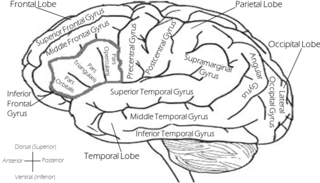Sleep
Sleep, Brain Development, and Mental Health in Children
How good sleep relates to brain development.
Posted February 12, 2020 Reviewed by Davia Sills

Many studies have documented associations between sleep, cognitive performance, and mental health in children. While the neural mechanisms underlying these associations have been largely unknown, imaging studies of the brain are providing new ways of understanding what areas of the brain are involved.
A recent article reports on a study of MRI scans of over 11,000 children, ages 9-11, from 21 centers in the U.S. with a wide range of geographic, socioeconomic, ethnic, and health characteristics. Parents completed a survey that asked about their child’s sleep duration and 10 different areas of mental health problems. Children were assessed with a standardized battery of cognitive measures. Nearly half of the sample was surveyed again after one year.
Among all areas of mental health, depression was most significantly related to sleep. Children who slept longer showed less depression and higher cognitive scores. Children who slept longer had less screen time on phones, computers, etc. and also reported feeling a greater sense of safety and security in their homes and neighborhoods.
In children who slept less, the areas and volumes were smaller in numerous brain regions, including the orbitofrontal cortex, prefrontal cortex, temporal cortex, precuneus, and supramarginal gyrus. Lower cognitive scores were also associated with smaller areas and volumes in the prefrontal and anterior cingulate cortex, medial orbitofrontal cortex, temporal cortex, insula, inferior parietal gyrus, thalamus, caudate, and putamen.
For the longitudinal study, children who showed more mental health problems when first assessed showed less sleep duration a year later. This result highlights the bidirectional nature of relations between sleep and mental health. Poor sleep compromises mental health, and mental health problems, in turn, lead to poorer sleep. The fact that associations are found over a year’s time indicates strong and long-lasting effects.
This study is notable in that it is the first with a very large and diverse sample to show differences in brain structure for children who have shorter or longer nightly sleep. Studies with both adults and children have shown the importance of sleep for learning and memory consolidation and for the regulation of emotions. This new evidence enhances our understanding of the biological bases for these relations. Sufficient sleep is important at all ages, but good sleep during childhood, when the brain is developing, is crucial for optimal outcomes.
References
Cheng, W., Rolls, E., Gong, W., Du, J., Zhang, J., Zhang, X. Y., ... & Feng, J. (2020). Sleep duration, brain structure, and psychiatric and cognitive problems in children. Molecular Psychiatry, 1-12. https://doi.org/10.1038/s41380-020-0663-2


